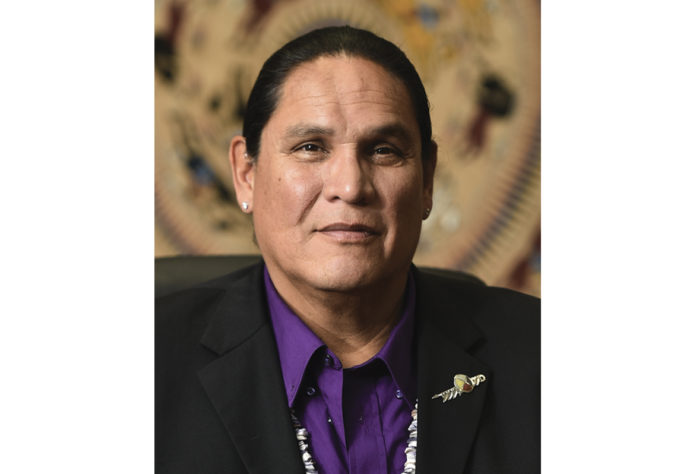by Ernest L. Stevens, Jr.
The Indian gaming industry remains one of the most significant sources of tribal government economic development in Indian Country. However, the federal rules governing the review and approval of government-to-government negotiations between tribes and states lacked any substantive provisions. In the past, without written rules controlling their approval, tribal-state compacts were subject to the policy whims of each presidential administration. On February 21, 2024, the Interior Department corrected this oversight and released a final rule to update its “Class III Tribal-State Gaming Compact” regulations for the first time since 2008.
During IGRA compact negotiations, tribal and state governments had to rely on federal court decisions and often unpublished Interior documents for guidance. Interior’s final rule provides clarity and certainty to this process by codifying several decades of departmental policy developed through decision letters and federal case law.
The Indian Gaming Regulatory Act was a compromise that sought to balance tribal, federal, and state government interests. While the Act is far from perfect, Indian Country has made it work to strengthen tribal governments and improve the lives of tribal communities for more than 35 years.
The U.S. Supreme Court’s 1996 decision in Seminole Tribe of Florida v. Florida upset this balance, negating the ability of tribal governments to sue state governments for failure to negotiate compacts in good faith. Some states have attempted to use this decision as leverage to force the inclusion of compact provisions that go far outside the scope of what Congress intended when it enacted IGRA.
The final rule acknowledges that Congress, through IGRA, set limits on what provisions would be up for negotiation. The final rule, for example, notes that permissible compact provisions include those relating to the application of laws or regulations or that address tribal or state jurisdiction “that are directly related to, and necessary for, the licensing and regulation of gaming activity,” and provisions “directly related to the operation of gaming activities.”
Another aspect of Indian gaming and the tribal-state compact process that was impacted by the Supreme Court’s 1996 ruling is the growth of “revenue sharing” provisions in tribal-state gaming compacts. Again, pointing to congressional intent, the background to the final rule notes that IGRA prohibits a state’s imposition of a tax, fee, or other assessment on tribal governments. No government in the United States is permitted to directly impose a tax on another government. IGRA does, however, permit states to negotiate for the reimbursement of the costs of regulating a tribe’s Class III gaming activity.
Through its compact approvals and in letter decisions, the Interior Department has required proof that a state’s meaningful concession provides a substantial economic benefit to the tribe to justify a revenue sharing provision in a gaming compact. The final rule codifies this policy. The rule acknowledges that compacts may include “revenue sharing in exchange for a State’s meaningful concessions resulting in a substantial economic benefit for the tribe.”
The final rule also addresses the growth in internet and mobile gaming that has continued in the wake of the Supreme Court’s 2018 Murphy decision, which struck down the federal prohibition against sports betting.
Since 2018, dozens of tribal governments have added sports betting as an offering at their brick-and-mortar operations. The progress of Indian gaming regarding internet sports betting has been mixed, with some tribes working through the compacting process to implement geo-fenced mobile gaming and others participating in state-run models outside of IGRA.
Congress did not intend IGRA to serve as an impediment to tribal government participation in new gaming markets or emerging technologies. The Act did not freeze tribal gaming in place in 1988. Instead, the Act provides a regulatory framework for Indian gaming – permitting tribes to work with state governments through the compacting process to address emerging markets for purposes of Class III Indian gaming.
The Interior Department’s final rule acknowledges these facts and makes clear that compacts may include provisions allocating state and tribal jurisdiction that deem remote wagers to take place at the location of the server accepting the wager that is located on the tribe’s Indian lands where this arrangement is acknowledged in either state law or the compact.
The final rule is the culmination of a two-year effort that included a number of listening sessions and formal government-to-government consultations with tribal leaders, and review of hundreds of comments submitted to the Interior Department.
Interior Secretary Deb Haaland stated that, “These regulations are part of the Biden-Harris administration’s commitment to ensuring that tribes have the resources they need to exercise their tribal sovereignty and support their communities. Not only does Indian gaming support tribal economies, the funding it generates helps to support the vital services that tribal nations provide to their citizens – from language preservation to healthcare. By updating these regulations, we will provide certainty and clarity to tribes for an industry that remains one of the most significant sources of economic development in Indian Country.”
Assistant Secretary for Indian Affairs Bryan Newland stated, “By providing clarity on Class III gaming compact negotiations, the Biden-Harris administration is following through on its commitments to Indian Country.”
The final rule was published in the Federal Register on February 21, 2024 and will take effect on March 22, 2024.
Ernest L. Stevens, Jr. is Chairman of the Indian Gaming Association. He can be reached by calling (202) 546-7711 or visit www.indiangaming.org.















































